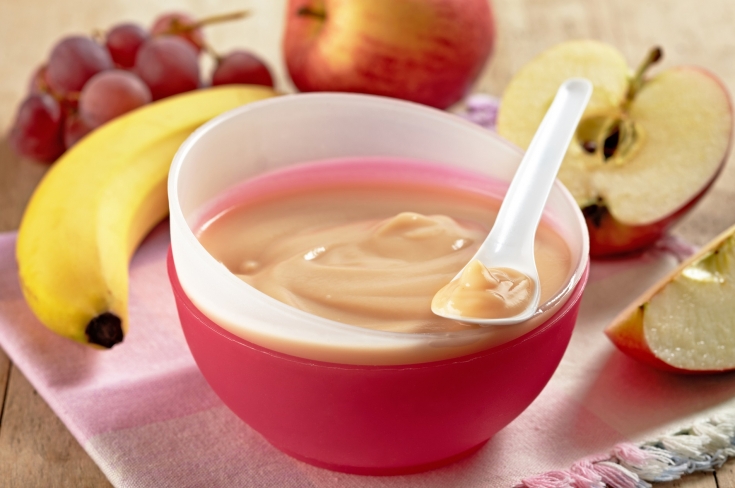Proper nutrition plays a key role in a child's growth and development. Therefore, starting from birth, every mother strives to give her baby all the best. Especially popular are baby food products in jars. They are stored for a long time, and tasty, and convenient when traveling or on a walk, where there is no way to cook food for your child. But there are many myths swirling around small jars of purees and juices. Someone believes that they are stuffed with preservatives and other harmful additives, someone thinks that they can sprinkle a child from complementary foods, and someone believes that such food is less healthy than natural food. But in fact, everything is not so. The editors of the Internet publication estet-portal.com have collected 5 main myths about canned baby food. We will try to understand them.
• Baby food from a jar is stored for a long time due to the presence of preservatives
• Baby food products cause allergies in a child
• Industrial purees and juices contain less vitamins than domestic ones
• Baby products contain palm oil
• Jar food is more expensive than homemade food
Industrial purees and juices contain less vitamins than domestic ones•
Baby products contain palm oil
•Baby food products cause allergies in a child
Jar food is more expensive than homemade food
• Industrial purees and juices contain less vitamins than domestic ones
•
Baby products contain palm oil
• Jar food is more expensive than homemade food
Baby food from a jar has a long shelf life due to the presence of preservatives
In order to keep the products as long as possible, various
preservatives and other harmful additives are added to it. But this does not apply to children's food. Adding various preservatives to such products is prohibited by law.Baby food products do have a long shelf life. But to increase the shelf life, they are processed by the thermal method and sterilized, and not stuffed with all kinds of "chemistry". With such processing, a person does not come into contact with the product, various microorganisms are destroyed, and new ones do not multiply due to the fact that the packaging is airtight.
As preservatives in canned products, natural citric acid and vitamin C are used, which benefit the child's body.
Still, it cannot do without additives. These are rice flour, corn starch, pectin and cereals. But they do not harm the health of the baby, because they have
exclusively natural origin. These components make complementary foods more valuable. They serve as a thickening agent and also aid in the absorption of the product itself.
Allergic reactions in a baby can occur to anything. After all, the body of each child reacts differently to a particular delicacy. But manufacturers of baby food take this fact into account. Therefore, they make low-allergenic purees and cereals that do not contain sugar, cow's milk protein, gluten and other allergens.
If, after feeding canned puree, the child still has an allergy, then this is most likely a manifestation of individual intolerance or improper introduction of complementary foods.
Palm oil is added to almost every product. This vegetable overseas fat is stuffed with butter, hard cheese, chips, ice cream, sweets, chocolate. The purpose of its application – saving. After all, more oil is collected from the berries of the oil palm tree than from the sunflower. But this component leads to various health problems, from diabetes to an increase in "bad" cholesterol.
For baby complementary foods, only a fraction of palm oil, called palm olein, is used in its manufacture. It is a source of palmitic acid, which is found in mother's breast milk.
Palm olein – safe ingredient. This is confirmed by a long history of its use and international studies.
Based on this,







Add a comment